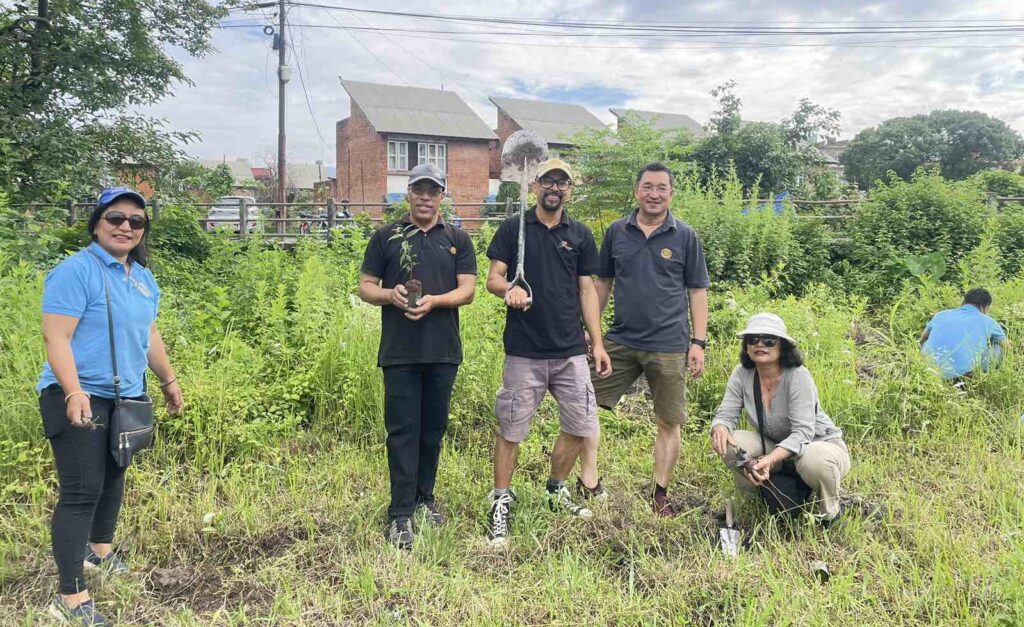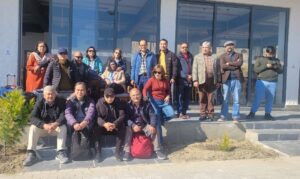Be Gardeners, Not Just Keepers

Nine years ago, when I joined the Rotary Club of Yala, our global family stood at 1.2 million. Today it is 1.1 million and still sliding. In my own club, I have watched passionate newcomers arrive, eyes bright with ideas, only to drift away after a few monsoon seasons. Some turnover is natural, but this quiet erosion alarms me. Rotary’s strength has always been its people, the ones who show up, roll up their sleeves, and make things happen.
I have served as club secretary, club president, GML publication chair, Information & Technology co-chair, and assistant governor, and visited 161 clubs across District 3292 (Nepal-Bhutan) both physically and virtually. I have talked about Rotary until my voice cracked, but almost always inside our own echo chamber. We celebrate projects and fellowship among ourselves, but how often do we share those stories with outsiders?
Here is the mindset that changed everything for me: every non-Rotarian is a potential Rotarian. Our job is not to act as a gatekeeper; it is to turn potential members into prospects by inviting them to real conversations about the difference we make; whether building a toilet in Phulchowki or teacher’s training at 500 schools in Nepal.
The world has changed around us with dual careers, flexible working hours, and work-from-home concepts, and our 20th-century model hasn’t kept up. Weekly lunch meetings with rules and endless reports worked when life was slower and networks were local. Today, they feel like a barrier, especially to younger folks juggling kids, side hustles, and 24/7 screens.
The numbers don’t lie: the average Rotarian age is pushing 58, and only 15 to 18 percent of us are under 40, while my home club’s average Rotarian age is 62. Yet Gen-Z and Millennials are pragmatic, cause-driven, digitally native, and the most diverse and influential generation ever seen. They’re not anti-service; they’re drowning in options like GoFundMe for earthquake relief, and many more. They want clear ROI: skills sharpened, networks widened, impact seen now. If we keep leading with “We’ve been around since 1905” or formal titles, we sound like a museum, not a movement.
So how do we fix this?
Not by ditching our core. “Service Above Self” and the Four-Way Test are timeless. We modernize the container: the club, the meetings, and the way we operate. Think of Rotary as a rhododendron forest. It started from a single seed of service, but even rhododendrons drop old leaves and sprout new ones to survive winter. We must be gardeners, not just keepers.
Go Hybrid (physical+digital). Make hybrid meetings the default. In-person for those who crave food and physical connections; Zoom or Google Meets for the Rotarians working in remote area or traveling abroad. Launch satellite clubs for young pros that meet Friday evenings at a Thamel café or Saturday mornings on hiking. Let them set the vibe with acoustic guitar, not a gavel.
Offer micro-volunteering and impact sprints. One-off, high-energy bursts: a Saturday Bagmati River cleanup, planting 50,000 tree seedlings all over Nepal, or designing low-cost menstrual hygiene kits. Motto: “Try us on for size.” Use WhatsApp groups for instant coordination, Instagram Reels or TikTok for 60 seconds of mud, sweat, and smiles.
Move from cheque-writers to community innovators. Partner with Nepali startups; Khalti for digital giving, CloudFactory for tech training. Launch Rotary Innovation Grants Nepal: NPR 50,000 seed funds for member-led ideas backed by ward-level data. Measure lives changed, not just lakhs raised.
Be the hub, not the hero. Co-host events with NYEF, WWF Nepal. A joint Bagmati cleanup with a local eco-startup beats 20 Rotarians alone with bamboo sticks.
Diversity is rocket fuel. Induct widely from different ages, jobs, backgrounds, and ethnicities. Audit our language; replace “classification talk” with “passion pitch.” Reframe the pitch from “Service above Self” to “Service and Self-Development.” Be brutally clear: “Lead a project, manage a budget, speak to crowds, and build your LinkedIn while ending open defecation.” Give new members immediate ownership: “Here’s NPR 25,000 and a mentor. Go install solar lights in your village.”
Kill boring meetings with a 50/50 rule: half admin (if needed), half action or inspiration. Shorten the club installation program with fewer speeches and no khada or token-of-love elements. Use reverse mentorship where the young generation teaches us digital tricks and we share wisdom, flattening hierarchy and building respect. Create real community through hikes, game nights, casual coffees, bonds beyond the boardroom.
Show, don’t tell. Invite with action: “End period poverty with us this Saturday in Dhanusha” or “Build 20 computer labs in Tarai.” Hand young leaders the keys: project budgets, Canva logins, and the microphone at district conference.
Our legacy is the polio-free World we helped create, but it is not guaranteed. The Rotary flame burns bright in the World, but it needs new fuel namely flexibility, youth, and innovation. Let’s speak the language of Gen-Z, open the gates of our clubs wide, and watch Rotary bloom for another century.
Who’s with me?





Absolutely, i agree with your statement, we rotary club of Pashupati member becoming “ Second Guardian for 2o students of one of the Government School students those parents have low economic status ( Basic Education and literacy) also we are planning a medical Camp and warm clothes distribution in Himalayan District (Humla) recently! Only clean and true heart person will be a true rotarin and will serve the society!!